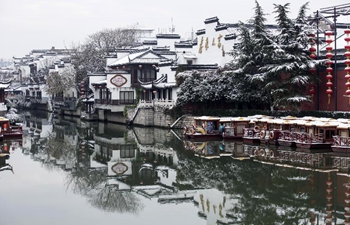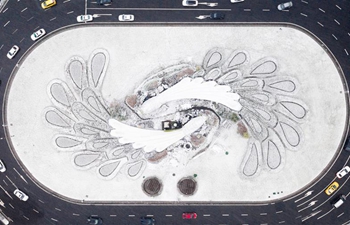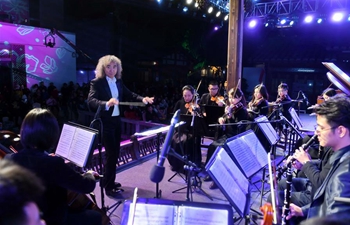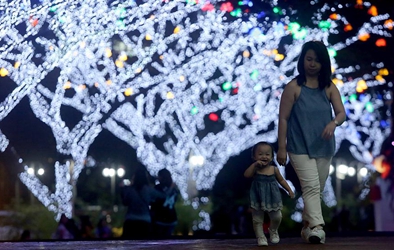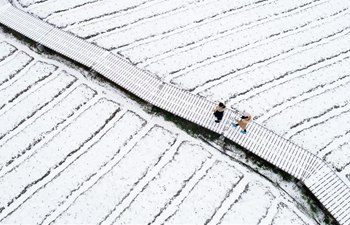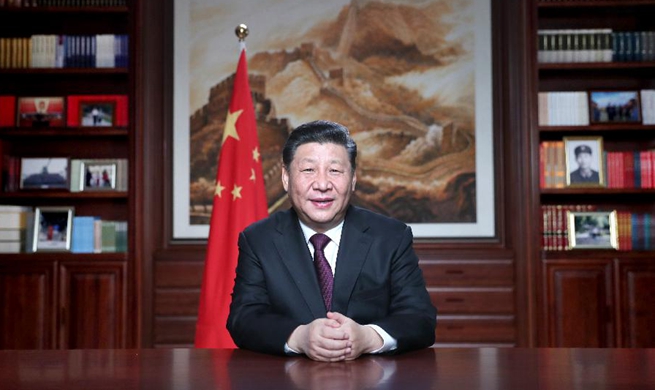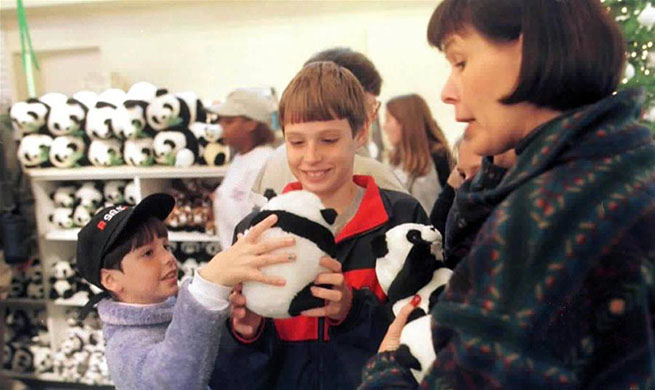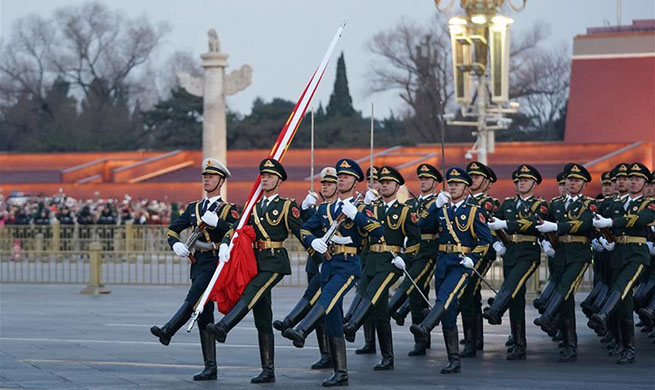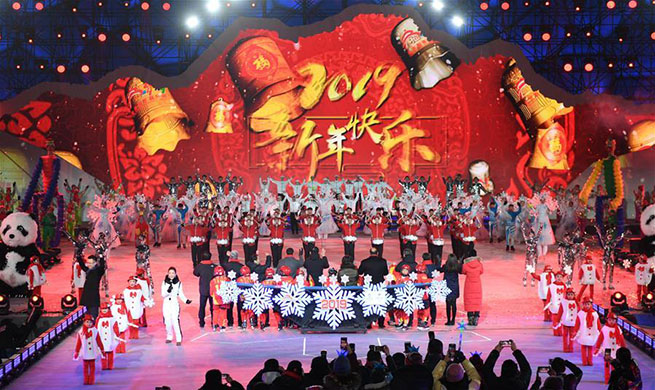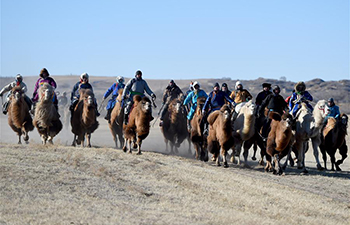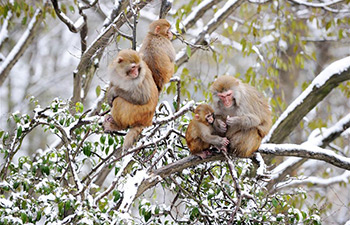NANNING, Jan. 1 (Xinhua) -- In a mountainous village in southwest China's Guangxi Zhuang Autonomous Region, Long Yunqing, 27, runs a beauty shop in a quaint town with narrow streets.
Long's shop is always crowded with customers, waiting to get their nails done and eyebrows tattooed. Many are attracted by Long's reputation as the fourth-generation "village beauty" in the Baimian Yao stockaded village in Longsheng County.
The county's four major ethnic groups including Yao, Miao, Zhuang, and Dong, which have the tradition of choosing their village beauties who not only have pretty faces but can also sing or dance or are strong leaders in their communities.
The Yao beauty is in charge of the affairs of the women in the village. During festivals, Long will organize all the women in her village to sing folk songs, and when villagers get married, she is often invited to make beds and touch pillows, which are considered auspicious items in their culture.
Wu Congkai, from a nearby village, fell in love with Long at first sight.
Showering her with bouquets of red roses, delicate cakes, and trips to metropolises, Wu always brings her surprises, said Long. The romantic gestures won her over, and they got married in 2017.
"Spending our lifetime together sounds like a distant dream yet so true," Long said.
ARRANGED YET PERFECT MATCH
Unlike the lucky millennial Long, romance was off limits for Long Guoying back in the 1950s, when marriages were arranged by parents.
As the oldest Yao beauty in the village, Long Guoying, 75, married a forestry official 12 years older than her in 1958. Her mother arranged the marriage because of the man's stable career and honest character.
"At that time, we could only accept the fate. We have to 'love' anyway, but I was the lucky one," Long said.
During the years when famine spread across the nation, her husband always saved his food for Long after a day of hard work. He went into the forest, barefoot, for firewood throughout the poor years when shoes were a luxury.
"His decades of tender care were the most romantic thing for me," Long said.
"We seldom have quarrels because he always puts up with me. As the drops of his care accumulate just like a river flowing in me, I come to realize that I love him more than anyone else in the world."
For Long Yunqing in her 20s, Long Guoying's love story is something she yearns for as the elder couple has survived through thick and thin.
But Long Guoying believes the younger generation has their own blessings. "They have the freedom of marriage, so they are responsible for their own pursuit of happiness," said the old lady.
MARRIAGE WON BY SINGING FOLK-SONGS
It was in the 1970s that singing folk songs to find one's perfect match began to prevail among the ethnic groups in Guangxi as arranged marriage faded out.
The second-generation village beauty in Baimian Yao village, Yu Jiamei, 66, reminisced her first encounter with her husband.
One day when Yu was working in the mountains for firewood, she heard a beautiful singing voice across the hills, and couldn't help but sing along with him.
In Yao's culture, young girls and boys enjoy singing folk songs in the hills, usually in settled patterns but with impromptu lyrics. The whole song is a narrative poem with complete plots, which consist of independent lyrical poems. Yao people consider it a battle of wits.
Antiphonal singing had been carried out between them for three days in a row before concluding with the young man admitting his defeat. Yu defended her reputation as a talented village beauty and won the young man's heart.
WHEN YAO MET ZHUANG
Liao Yanying, 42, is Baimian Yao's first village beauty that comes from a nearby village of Zhuang ethnic group. She and Long Yingguo's son tied the knot in 1999.
Old ideas in the village discouraged intermarriage between Yao people with other ethnic groups. Offenders often faced harsh criticism.
When Liao first met her in-laws, she was unfamiliar with the customs of the Zhuang ethnic group, but the family gave her a big welcome despite the cultural differences.
The smart lady soon fit in the family and was elected to be Baimian Yao's village beauty of the third-generation in the same year she was married.
Liao now always wears a sleek updo with her nearly 70 cm long hair, an age-old tradition upheld by the Yao people. She also wears her silver hoop earrings, and is dressed in red, just like a Yao woman.
Guangxi now has more than 1.3 million households made up of two or more ethnic groups.
"When in Rome, do as the Romans do," said Liao.




